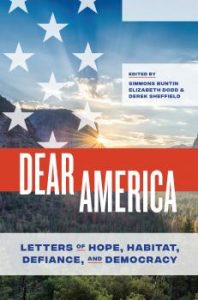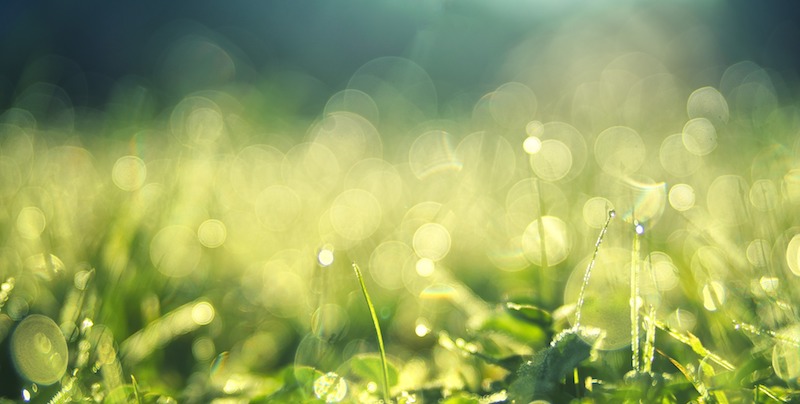Dear Readers—America, Colonists, Allies, and Ancestors-yet-to-be,
We’ve seen that face before, the drape of frost-stiffened hair, the white-rimmed eyes peering out from behind the tanned hide of a humanlike mask, the flitting gaze that settles only when it finds something of true interest—in a mirror. Cruel eyes, a false face and demeanor of ravening hunger despite the unconscionable hoarding of excess while others go without. The spittle quickly licked away from the sly “fox in the henhouse” smirk that sends chills down your spine, a mouth that howls lies pretending it’s an anthem.
Americans keep acting surprised by the daily assaults on American values once thought unassailable. I can’t speak for all Native people, but we’ve smelled that carrion breath before. We know who this is, the one whose hunger is never slaked—the more he consumes, the hungrier he grows. We’ve met him on our shores, at the Thanksgiving table, at the treaty table, at the Greasy Grass, on the riverbank at Standing Rock, and in the courts. His mask does not fool us, and having so little left to lose and all that is precious to protect I call him the name of the monster that my ancestors spoke of around the winter campfire, the embodied nightmare of greed, the Windigo.
We know him. Perhaps this is why he has taken special efforts to poke Indigenous peoples in the eye, because we see him. He has proven himself an equal-opportunity offender to people black and brown. But with the spite of bullies everywhere, he has sharpened his stick with special vindictiveness for Native people from the first days of his administration, by reversing the glimpse of justice we held for one shining moment at Standing Rock, to dishonoring the Code Talkers, to undermining treaty obligations and threatening termination for our people, to casting Pocahontas’s name as a slur that manages to taint every stereotype across a range of Indigenous identities, to denying protection for Gwich’an livelihoods, to sending drill rigs to penetrate sacred land.
Americans are called on to admire what our people viewed as unforgivable.
He is the obscene of the Anthropocene, the colon of colonization, the grinder of salt into the original wound of this country, but lest I spend any more words on cathartic name-calling, let me say that Windigo is the name for that which cares more for itself than for anything else. It shrieks with unmet want—consumed with consumption, it lays waste to humankind and our more-than-human kin.
Windigo tales arose in a commons-based society where sharing was a survival value and greed made one a danger to the whole. But in a profit-based society, the indulgent self-interest that our people once held as monstrous is now celebrated as success. Americans are called on to admire what our people viewed as unforgivable.
The particular weapon of the Windigo-in-Chief is the executive pen, used against what has always been the most precious, the most contested wealth of Turtle Island—the land. With the stroke of that pen, he has declared that “oil is life” and that protecting the audacious belief that “water is life” can earn you a jail sentence. The same pen gutted the only national monument designed by Native people to safeguard a sacred cultural landscape, the Bears Ears. In opening those protected lands for uranium mining, he triumphantly claimed that he was re- turning public land to the people.
From his origins as a real estate developer to his incarnation as Windigo-in-Chief, he has regarded “public lands”—our forests, grasslands, rivers, national parks, wildlife reserves—all as a warehouse of potential commodities to be sold to the highest bidder.
Let us remember that what the United States calls “public lands” (and, if the truth be told, all of what the United States calls private property as well) are in fact ancestral lands; they are the ancestral homelands of 562 different Indigenous peoples. A time-lapse map of North America would show the original lands of sovereign peoples diminishing in the onslaught of colonization and the conversion from tribal lands to public lands, some through treaty-making, some through treaty-breaking, some through illegal sale, and some through what were termed “just wars,” by executive action and “encroachment.”
Not only was the land taken and her people replaced, but colonization is also the intentional erasure of the original worldview, substituting the definitions and meanings of the colonizer. That time-lapse map of land taking would also show the replacement of the Indigenous idea of land as a commonly held gift with the notion of private property, while the battle between land as sacred home and land as capital stained the ground red. Of course our ideas were dangerous to the idea of Manifest Destiny; resisting the lie that the highest use of our public land is extraction, they stood in the way of converting a living, inspirited land into parcels of natural resources.
You, right now, can choose to set aside the mindset of the colonizer and become native to place, you can choose to belong.
Native people have a different term for public lands: we call them home. We call them our sustainer, our library, our pharmacy, our sacred places. Indigenous identity and language are inseparable from land. Land is the residence of our more-than-human relatives, the dust of our ancestors, the holder of seeds, the makers of rain; our teacher. Land is not capital to which we have property rights; rather it is the place for which we have moral responsibility in reciprocity for its gift of life. Here is the question we must at last confront: Is land merely a source of belongings, or is it the source of our most profound sense of belonging? We can choose.
Our ancestors had a remedy for Windigo sickness and the contagion it spreads. Those who endangered life with their greed were banished from the circle of what they would destroy. They were cast out from the firelight and the bubbling stewpot, from care and community. You colonists also have that power of banishment. Will you use it? It’s not enough to banish the Windigo himself—you must also heal the contagion he has spread. You, right now, can choose to set aside the mindset of the colonizer and become native to place, you can choose to belong.
Colonists, you’ve been here long enough to watch the prairies disappear, to witness the genocide of redwoods, to see waters poisoned by the sickness of Windigo thinking. The Windigo has no moral compass; his needle swings wildly toward the magnetism of whatever profit beckons. Surely, however, the land has taught you differently, too—that in a time of great polarity and division, the common ground we crave is in fact beneath our feet. The very land on which we stand is our foundation and can be a source of shared identity and common cause. What could be more common and shared than the land that gives us all life? Rivers don’t ask for party affiliation before giving you a drink, and berries don’t withhold their gifts from anyone.
The moral compass guiding right relationship with land still remains strong in pockets of traditional Indigenous peoples. The sharp stick of the bully in the White House only hardens our resolve. The needle still points faithfully north, to what we call in my language Giiwedinong, the “going home star.” When we acknowledge the truth that all public land is in fact ancestral land, we must acknowledge that by dint of history and time and the biogeochemistry that unites us all, your dust and your grandchildren will mingle here. They will know what you do here, they will reap the consequences of whether you choose to banish Windigo thinking. You could follow the “going home star” and make a home here grounded in justice for land and people.
Colonists become ancestors too. The question is, What kind of ancestor do you want to be?
Sincerely,
Robin Wall Kimmerer
__________________________________

From Dear America: Letters of Hope, Habitat, Defiance, and Democracy, edited by Simmons Buntin, Elizabeth Dodd, and Derek Sheffield, published by Trinity University Press. Used with the permission of Trinity University Press.
